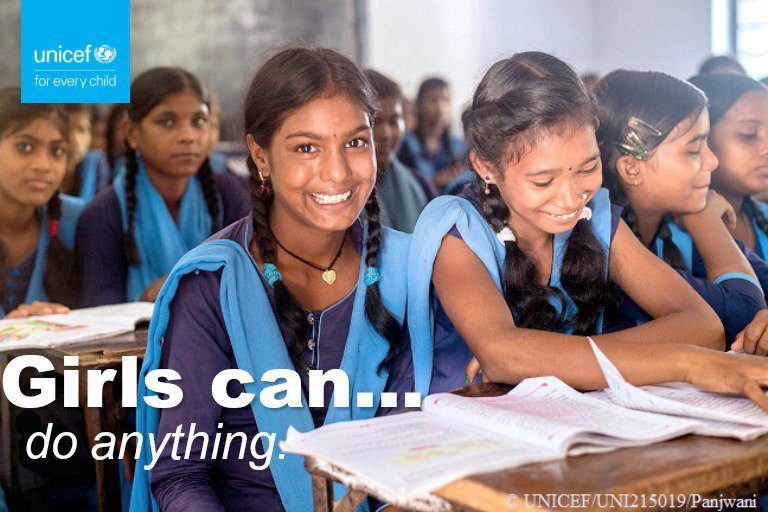By Asmau Ahmad
The United Nations Children’s Fund (UNICEF) says all is set to establish menstrual banks in some schools in Northern Nigeria.
Mrs Mairama Dikwa the UNICEF Education Specialist at the Bauchi Field Office told news that the establishment would begin in November across all the schools with Girls Enrollment Project 3 (GEP3).
She said that the project would be carried out under the Menstrual Hygiene Management of the agency s Girl Education Project which was introduced to support girls and ensure that they remained in school.
According to her, the gesture was an ideal one toward encouraging and improving Girls Enrollment in schools as well as ensuring that the girls did not break the circle of learning
Mrs Dikwa added that most times when the girls menstruate, they stayed off school because they did not have what it takes to take care of themselves as well as in some homes because their parents could not afford sanitary pads.
“What we are aiming to do is to make sure that each school where we are intervening has a menstrual bank where some of the pads would be stored and the girls can have access whenever they are menstruating.
“We are working with High Level Women Advocate (HILWA) to create awareness and sensitise most specifically the policy makers to the need to support some of these schools with the pads.
“This would enable the girls to use and remain in school. This will really go a long way in making sure that even when the girls are menstruating, they will feel comfortable to come to school because they know that they would be supported,” Dikwa added.
She further said that UNICEF was working to see how it could support the girls with the usage of reusable pads, as well as engage their mothers on how to produce the pads so as to be able to contribute their quotas in their children s menstrual hygiene and education consistency.
The education specialist revealed that the project at its pilot stage would commence in 50 Junior Secondary Schools in each of the six states of Sokoto, Zamfara, Niger, Kano, Bauchi and Katsina where UNICEF GEP 3 project was being implemented.
She said: “We were able to extend it to additional four states where we have a high level of women advocate establishments. So, apart from the six states we have Adamawa, Gombe, Plateau and Borno states that also keyed into the initiative to make sure that they have pad banks in 50 Junior Secondary Schools across their states.”




